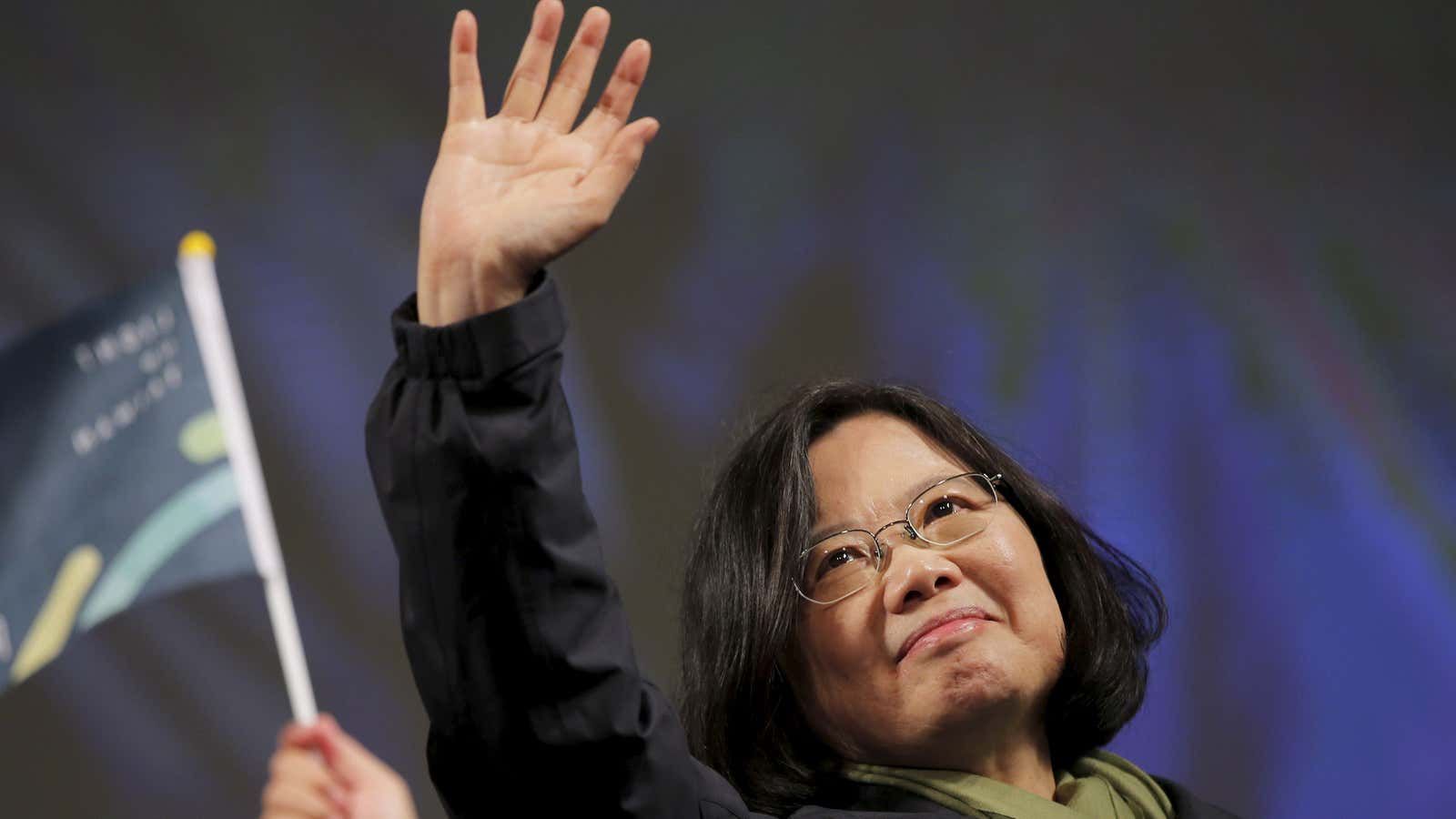Taiwan’s first female president, Tsai Ing-wen, will not be inaugurated into office until May 20. But Beijing is already blaming her for future decisions that may upset the delicate balance between the mainland and the island, which China views as part of its territory but is a self-governed democracy.
A statement from Ma Xiaoguang, spokesmen for China’s Taiwan Affairs Office, presented Beijing’s position with typically flawless internal logic. “We have emphasized many times that our stance toward Taiwan will not change because of changes in Taiwan’s internal politics,” he said in a press conference (link in Chinese) earlier this week. “If any deadlock or crisis emerges in cross-strait relations, the blame will lie with those who have changed the status quo.”
“After some time,” he added, it will become clear who is “protecting” cross-strait relations and who is “burning bridges.” In short, anything that goes wrong is Taiwan’s fault.
The statement is a warning against any moves Tsai might make to loosen China’s political grip on Taiwan. China has recently made moves to re-assert its claim on Taiwan, such as deporting to China several Taiwanese nationals accused of committing cyber-crime in Kenya.
Tsai, for her part, has laid out a slightly contradictory policy toward China. She has promised to maintain the status quo, but to do so in a way that is based on “democratic principles.” A main point of contention is Tsai’s reluctance to endorse the “1992 Consensus”—the result of a semi-official 1992 meeting between leaders of Taiwan and China—which agreed that there is “one China,” but different interpretations of what that means. That consensus was the basis of relatively calm relations with China during sitting president Ma Ying-jeou’s eight years in office.
The phrase “democratic principles” no doubt also scares Beijing. While relations with China have long been a major issue in Taiwan’s internal elections, Tsai and her Democratic Progressive Party were elected in landslides across the country this year by focusing mostly on domestic issues. What’s more, voters increasingly identify as “Taiwanese”, and find Beijing’s meddling to be a major point of frustration.
Tsai will have a lot on her plate beginning May 20. At least she knows where Beijing stands.
